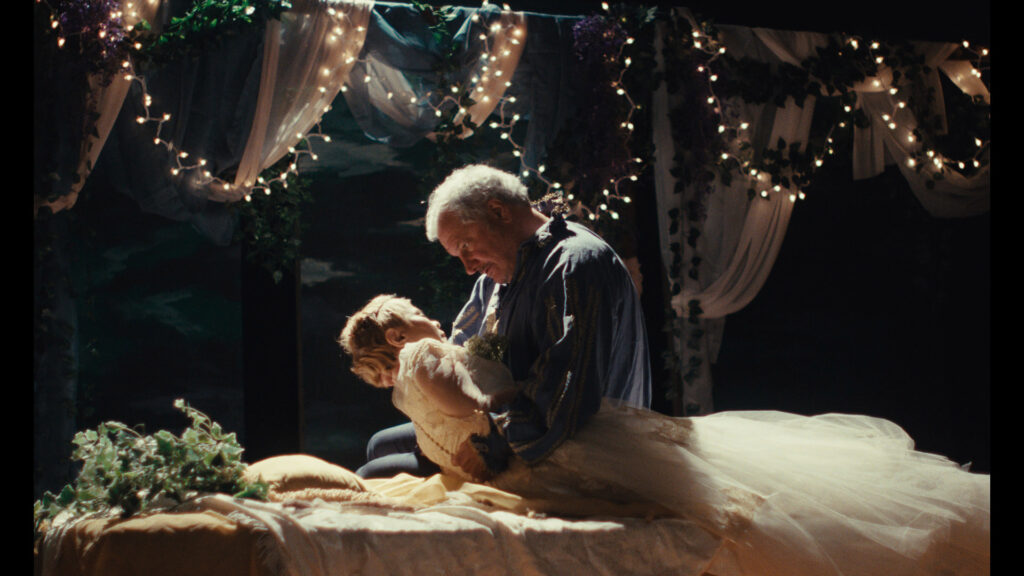
Written and directed by Kelly O’Sullivan
(IFC 2024)
Your film is both about the play Romeo and Juliet and an interpretation of it from the parents’ perspective. Why did you choose to work with Shakespeare?
Before this movie, I didn’t even really like Shakespeare. The truth is I saw a trailer for the National Theater of London had put out for their production of Romeo and Juliet, and I knew that I wanted Dan to have to be in a play that would force him to confront something going on in his own life. Also, Romeo and Juliet is a touchstone culturally.
And my relationship to Romeo and Juliet has really changed with age. When I was a teenager I thought Baz Luhrmann’s Romeo Plus Juliet with Leonardo DiCaprio was this super romantic, sexy thing. Now that I’m a parent, I think it’s so stupid what they do, so tragic, and such a heartbreaking examination of what it’s like to be young and not grasp consequences.
Your main character, Dan, who finds new life in this community theater production, is a very salt-of-the-earth, working-class guy. Why use him?
I wanted him to be someone who the only access to emotion he’s had is anger, and men of that generation are taught, Don’t cry, just put your head down, keep going. If terrible things happen to you, deal with it. The type who desperately needs a place where he can connect with people, not just expressing sorrow but joy. One of my favorite scenes in the movie is when Dan is dancing with everybody. He doesn’t get to be silly and be playful.
As much as anything, Ghostlight is a love note to community theater. Is there value there that most people are missing?
I think so. I did a lot of community theater growing up. I acted at this place called The Weekend Theater (because it was only open on weekends), and the thing that I love so much about it is that we are unfairly taught that if you are going to be an actor or musician, it needs to be your job. That if you do it for fun or as a hobby that it’s some sort of failure or embarrassment. Actually, it’s so much fun and is this outlet for connecting to other people. There is a stigma against community theater that really robs us ordinary people of the chance to live a creative life.





